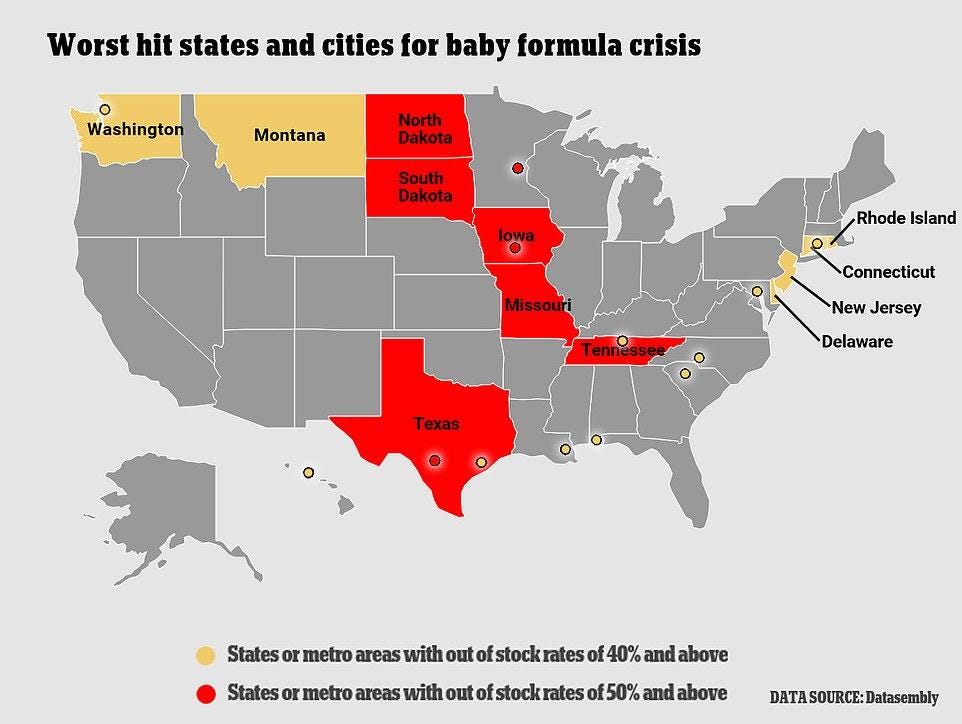Infant Formula, Price Controls, and the Misallocation of Resources
 I’ve been reluctant to write about the shortage of infant formula simply because it’s so tiring to say the same thing over and over again. Obviously, this is a classic case where the FDA should allow imports of any food or baby formula approved by a stringent authority. (Here’s the US Customs and Border Patrol bragging about how they nabbed 588 cases of infant formula from Germany and the Netherlands as if it were cocaine.) Scott Lincicome has an excellent run down which covers not just the FDA but the problems caused by trade regulation and the WIC program as well.
I’ve been reluctant to write about the shortage of infant formula simply because it’s so tiring to say the same thing over and over again. Obviously, this is a classic case where the FDA should allow imports of any food or baby formula approved by a stringent authority. (Here’s the US Customs and Border Patrol bragging about how they nabbed 588 cases of infant formula from Germany and the Netherlands as if it were cocaine.) Scott Lincicome has an excellent run down which covers not just the FDA but the problems caused by trade regulation and the WIC program as well.
What I want to do is focus on something less discussed: Why does the shortage vary across the country and even city by city?
I believe one reason is implicit price controls, either due to fear of regulatory backlash, regulatory constraints through other programs, or a misplaced desire not to upset consumers.
Price controls create shortages–that much is well known–but they also create a misallocation of goods. No doubt you have seen pictures from the 1970s of long lines of cars waiting to get gasoline. But there weren’t lineups everywhere at all times–rather we had the strange situation where there were shortage of gasoline in some places while, just a hundred miles away, there was plenty. Or shortages one day and surpluses the next.
Prices rationally allocate goods across space and time in response to shifts in demand and supply. If demand increases in one place, for example, prices rise, creating an incentive to bring in supplies from elsewhere. A rising price signals where supplies are needed and creates an incentive to deliver. Or, as Tyler and I put it, A price is a signal wrapped up in an incentive. A price controlled below the market price creates a shortage and it also kills the signaling and incentive function of prices. The result is allocational chaos: Shortages in some places and times and excess supply in other places and times.
In fact, price controls in a capitalist economy give you a window onto a planned economy. If you think of communism as a system of universal price controls this allocation chaos is the essence of why a communist state cannot rationally allocate resources.
Tyler and I discuss allocational chaos in our chapter on price controls in Modern Principles of Economics. See also this excellent video.